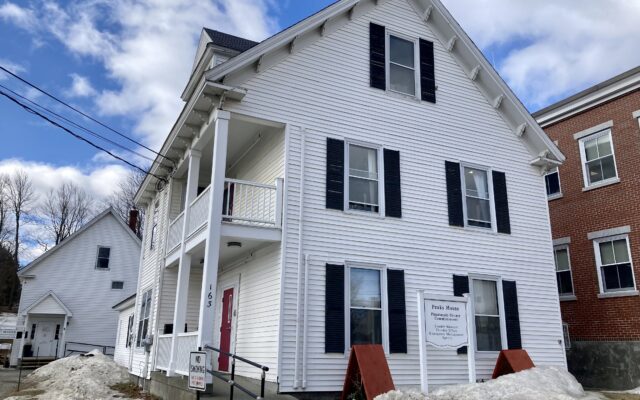
Lawmaker proposes change to how Maine’s county budgets are approved
By Kasey Turman, Bangor Daily News Staff
A state representative is pushing for a bill to be discussed in the Legislature that would give residents more input in their county budgets.
Rep. Will Tuell, R-East Machias, proposed a bill that would require voters to approve their county’s budget in a yearly referendum.
Tuell is one of several state representatives who submitted bills that would require residents to vote on and approve the county budget to give them a say in the process. Currently, county residents do not vote on the budget that they pay through a county tax in their property taxes.
Maine representatives have previously introduced bills that would require one specific county to vote on their budget, but Tuell and David Woodsome, R-Waterboro, presented bills that would require county budgets to be approved across the state.
The push for such a bill comes as several Maine counties face multimillion-dollar budget shortfalls that may force residents to choose between higher taxes or fewer services. Washington County voters rejected a $11 million bond meant to help solve the county’s budget crisis, while Penobscot County’s budget has a $3.5 million shortfall that has amassed since 2021.
The legislative council committee rejected Tuell’s bill 6-4 during an initial screening in October, but Tuell is bringing it to the committee again through an appeal process, partially because of the vote in Washington County.
Residents voting on their county budget would keep county commissioners more accountable to their constituents during a time when “soaring budgets” have been seen across the state, Tuell said. The county budget shouldn’t be treated any differently than the other budgets residents vote on.
“People of a county should have the final say on their budget, just like a town budget or a school budget,” Tuell said.
When asked about Tuell’s proposal, Washington County Commissioner David Burns previously told the Bangor Daily News he didn’t have “any problem with that at all.”
“Initially, I don’t have a problem with it at all. I don’t know what the future will bring, but I don’t have a problem with people being able to vote on how they’re going to be taxed,” Burns said.
In Penobscot County, municipalities may see a 20% budget increase in the next year to cover the $3.5 million shortfall, county commissioners said at a recent meeting.
Penobscot County’s budget process is overseen by a 15-member committee that is assembled through a combination of a caucus and appointments. This creates a mix of members knowledgeable about the contract and negotiation processes that affect the budget, Penobscot County Commissioner Andre Cushing said.
These required services, like housing inmates brought to the county jail and providing them with health care, might be affected by voters rejecting the budget, Cushing said.
Cushing said he didn’t know the details of the proposed bill and couldn’t speak on specific impacts it would have on Penobscot County.
Having a clear process on how the county would operate if the budget were denied is an important step that would need to be presented before the bill would be implemented, he said.
The county could be in “a bit of a quandary if folks do not approve a budget and don’t understand the consequences of their actions,” Cushing said.
“There’s a reason that we’re not a direct democracy, that we’re a representative democracy when it comes to these types of issues, and I think it would be short sighted to believe that giving a popular vote to an issue like spending tax dollars will cause people to be better informed on what they’re voting on,” Cushing said.
Washington County’s budget crisis motivated Tuell to bring the bill forward because residents didn’t have a say in how the county was spending its money despite being asked to approve a bond that would bail the county out of the crisis. A vote would give residents more ownership if budgets they approved later caused a shortfall.
Tuell and Woodsome brought forward two separate acts that would require county budgets to be voted on by county residents every year. The two bills are different because Tuell wants the budget to be part of a referendum vote while Woodsome did not specify how voters should approve the budget.
Tuell is bringing his bill back to the committee now because the process to implement it and add it to the ballot would take more than a year, and he said it should be implemented as soon as possible.
Woodsome did not respond to multiple requests for comment about his proposed bill.
BDN writer Daniel O’Connor contributed to this report.